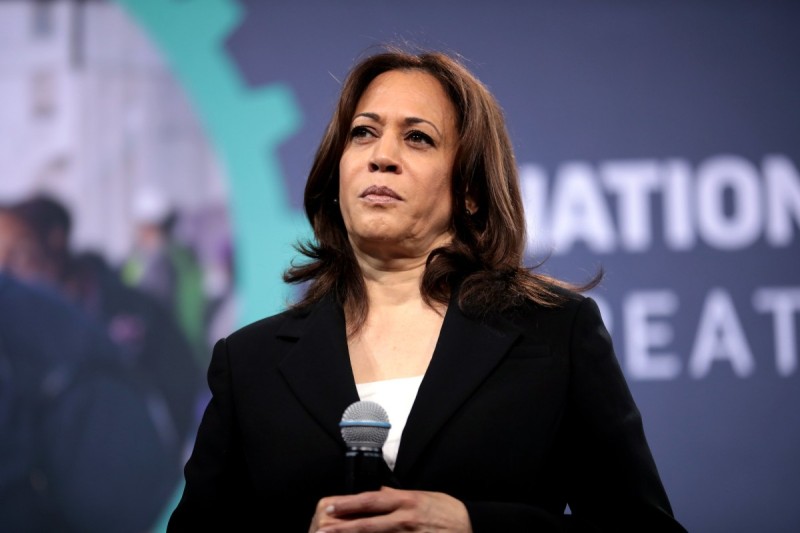Reality check on Kamala Harris and the upcoming Democratic National Convention
Harris’s nomination will still have to grapple with a vast divide in the Democratic base

US Senator Kamala Harris speaking with attendees at the 2019 National Forum on Wages and Working People in Las Vegas, Nevada. Photo by Gage Skidmore/Flickr.
Current American Vice President Kamala Harris, who went to high school in Montréal, appears to be the front-runner for the Democratic nomination after Octogenarian President Joe Biden finally stepped down after a controversial campaign for re-election. But don’t be completely fooled by this progressive shift in optics, as important as it might be to keep a quasi-fascist MAGA slate in Donald Trump and J.D. Vance out of the White House and elect the country’s first Black woman for the union.
While most of the Democratic Party base likely saw this coming and hoped for it months ago, elite party decision-makers, from James Carville to actor George Clooney, shifted their tone in response to a failed debate—not an ongoing genocide and failed domestic policies. This was not a real response to the interests of younger or marginalized Democratic voters this corporate party purports to represent. It was not the sort of shift that Lyndon B. Johnson faced, for example, in 1968, when the Vietnam War raged and students rebelled en masse against US foreign policy. This is not a change that signals the likely hundreds of thousands of dead Palestinians (most of them women and children) in Gaza since October 7 due to US-backed Israeli war crimes caused a shift in Democratic Party policy.
In fact, the Democratic Party has done little to save face with this quick shift in the presidential slate—which, of course, needs to be finalized at this August’s Democratic National Convention in Chicago. Harris will surely prove a more than worthy debate foe to Trump than Joe Biden, but her nomination, as symbolically important as it is, will still have to grapple with a vast divide in the Democratic Party base. Indeed, some point out how Harris’s record as a prosecutor hurt her chances in 2020. Will 2024 prove any different? As Sam Levin writes in the Guardian, “advocates fighting against police misconduct and mass incarceration said they welcomed a new candidate—while also recognizing Harris’ complex legacy in America’s criminal legal system.” Apprehensions of her views on carceral reform will still surely impact turnout. More critically, the new radical left journal, Hammer and Hope, indicates “The left has long called attention to Biden’s weaknesses. But over the past 10 months, his administration has profoundly alienated core constituencies the Democrats need to win, young people foremost among them.”
What is to be done? Well, some writers suggest a left-oriented economic populism might help shift the parameters of this election in the run-up to the Democratic National Convention in a few weeks. Indeed, with the appointment of populist politicians like J.D Vance, who purport to speak for and from the working class, even though it’s largely a charade, the Democratic Party should be putting forward a more aggressive stance, one that echoes some of the important gestures to working class identities espoused, at times, by Biden himself. It remains to be seen whether a major demonstration will take place in Chicago at the convention, but certainly, the ghosts of 1968 remain.
Should Harris select a running mate who can adequately address the very real economic and material concerns of most Americans who are often a paycheck away from destitution or worse, this could change things. Jacobin writer Ben Burgis goes so far as to suggest Harris should pick Bernie Sanders as her running mate, since he is more than cogent as an Octogenarian, and more than willing to face down Benjamin Netanyahu whilst he visits Congress this week. Interestingly, Sanders is also not endorsing Harris, though he is willing to work hard to “elect her.” As Sanders suggests, Harris needs to focus more on the “plight of the working class.” And if this is to happen, it needs to happen soon. The very state of American democracy could be at stake should the Democrats lose.
Ian Rocksborough-Smith teaches US and Canadian history at the University of the Fraser Valley.










